#god the noir theme and atmosphere of this setting is SO choice. and these characters fucking RULE
Text
Everyone Introduced in Dimension 20′s Mentopolis episode 1

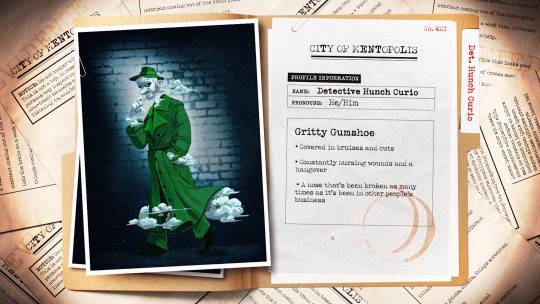
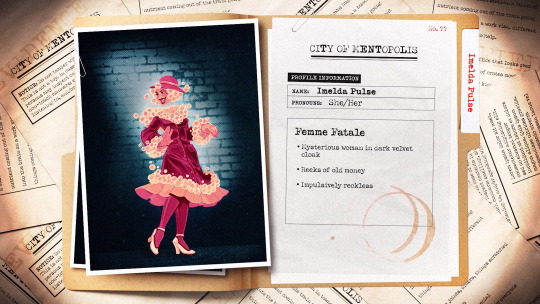
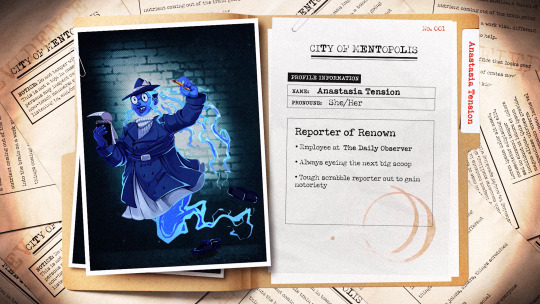
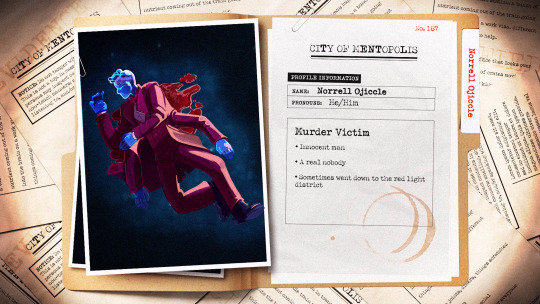




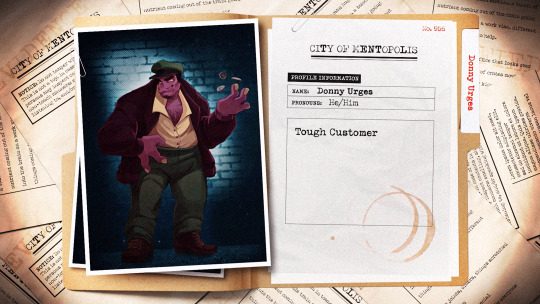
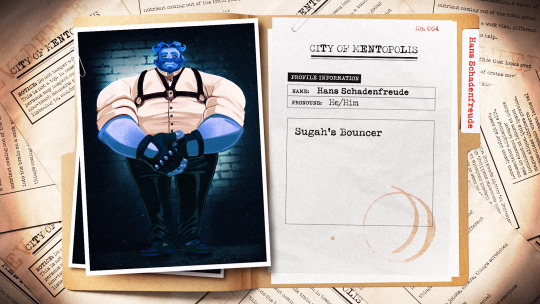
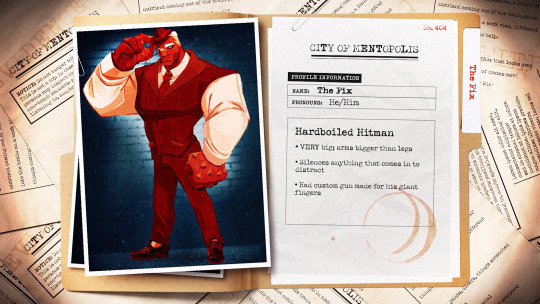
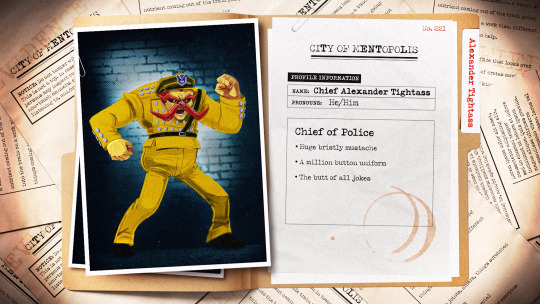

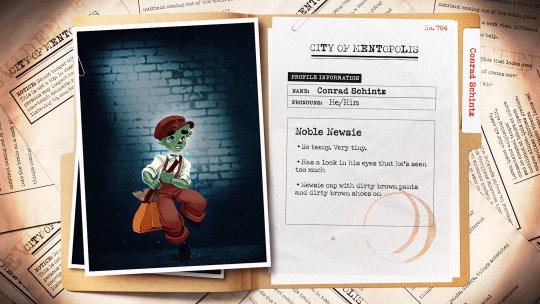
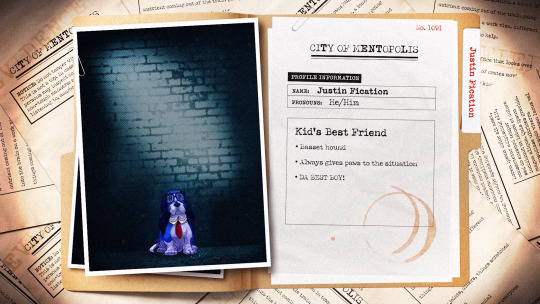
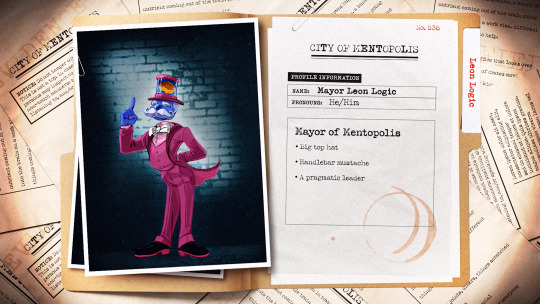
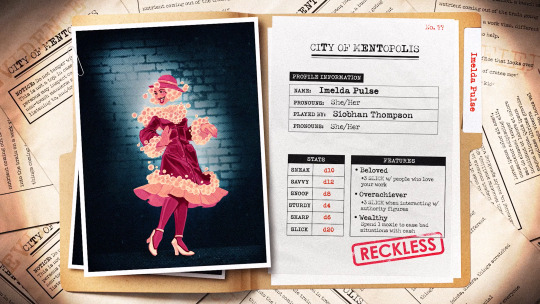


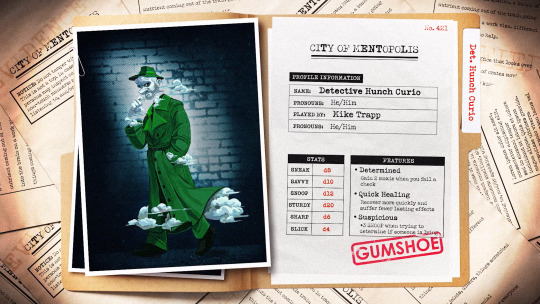
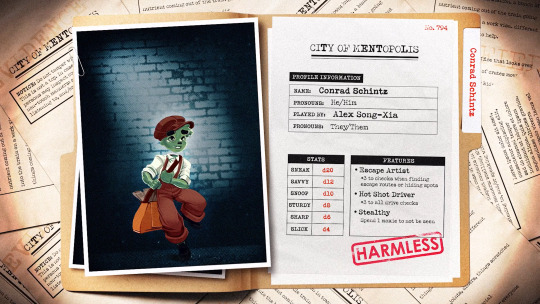
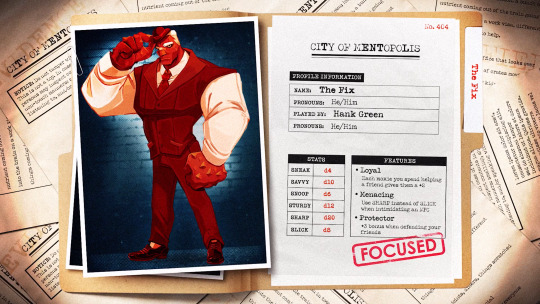


#dimension 20 spoilers#dimension 20#d20 introductions#mentopolis#mentopolis spoilers#d20 mentopolis#WOW what a bang to start off the season- i can't believe it took me this long to get through the first episode#god the noir theme and atmosphere of this setting is SO choice. and these characters fucking RULE#i love love love all the pun names they're so fun#and as a men enjoyer myself i am looking at the fix like.... Sir 😳#god everyone is so stylish and it FUCKS#also very fun to see danielle radford and mike trapp back in the dome#and NICE that they got freddie wong and hank green on the season too??#i'm not familiar with alex myself but i hope they enjoy being on d20!! they're very very fun as conrad!#and our queen of course siobhan <3#i say this for so many seasons but god this season cast is so stacked
423 notes
·
View notes
Text
March 23rd-March 29th, 2020 CTP Archive
The archive for the Comic Tea Party week long chat that occurred from March 23rd, 2020 to March 29th, 2020. The chat focused on Puppeteer by Eightfish.

Featured Comment:

Chat:
Comic Tea Party
BOOK CLUB START!
Hello and welcome everyone to Comic Tea Party’s Book Club~! This week we’ll be focusing on Puppeteer by Eightfish~! (https://www.webtoons.com/en/challenge/puppeteer/list?title_no=290620)
You are free to read and comment about the comic all week at your own pace until March 29th, so stop on by whenever it suits your schedule! Discussions are freeform, but we do offer discussion prompts in the pins for those who’d like to have them. Additionally, remember that while constructive criticism is allowed, our focus is to have fun and appreciate the comic! Whether you finish the comic or can only read a few pages, everyone is welcome to join and chat with us!
DISCUSSION PROMPTS – PART 1
1. What did you like about the beginning of the comic?
2. What has been your favorite moment in the comic (so far)?
3. Who is your favorite character?
4. Which characters do like seeing interact the most?
5. What is something you like about the art? If you have a favorite illustration, please share it!
6. What is a theme you like that the comic explores?
7. What do you like about the comic’s story or overall related content?
8. Overall, what do you think the comic’s strengths are?
Don’t feel inspired by the prompts? Feel free to discuss anything else that interested you!
eli [a winged tale]
Ooh exciting! I’ll try and get to this soon!
LadyLazuli (Phantomarine)
Yes yes, I had started reading this last week, want to continue and get in on this convo!!
Joichi / Sarah
Oh I'll take a look at reading Puppeteer!
shadowhood
Ditto. Time for another art binge
eli [a winged tale]
1) I love the colours and lighting! As for the story, the banter really drew me in and when J offered freedom, that was my hook 2) My favourite moment was when J tore Eli out of his body! That was a very striking moment. 3) I really like J and Sam They’re both characters with a strong voice and motivation. 4) I enjoy the friendship chat between Sam and Eli. They really ground the whole college experience and the comic world for me. 5) Let me find it! 6) I think the themes of feeling lost in life or directionless after regimented high school are very relatable. It’s one thing to know where you wanna go and want to be but often we feel we’re just floating in reality. 7) I love the aesthetics! Very unique style yet also clear in storytelling! 8) I would say the strengths tie into the fast pace and great characters. I’m not sure where we’re headed in the comic but I’m sure we will get to know why beings like J and the Ocean lady exist and what roles Eli/Sam would play in the story great work Eightfish!
Love this shot! Great paneling!
sssfrs (JOE IS DEAD)
The artwork is so beautiful!
shadowhood
Yeah, the flow of motion is amazing here that's really good gesture drawing
Feather J. Fern
I have to say I love the way you do the limited palette for the first few pages, it's really cool!
mathtans
Oh! From setup to where some f/f romance is implied. I shall read more. (Nice when the ships are verging on canon, if not there...)
Wonder if J is going to set things up such that Eli has to possess one of them.
Eightfish (Puppeteer)
Aaa, thank you all for the compliments about my art, eli, sssfrs, shadow, feather. I'm really trying to make this thing look good and I'm glad you guys like it.
sssfrs (JOE IS DEAD)
It looks really good!!
eli [a winged tale]
Love it Eightfish! Can’t wait for more!
RebelVampire
What I liked about the beginning is just kind of how jarring it is (in a good way). You get thrown right into a semi-tense/suspicious interaction, and it really kind of sets that tone for the rest of the comic. Which is actually what I like about the story all together. There's always this kind of laid back atmosphere to it where you're never really sure if you should be concerned or not. So it's got this right beat where you aren't always screaming but also aren't ever able to fully relax cause it feels like danger is around the corner. Coincidentally, the beginning is also probably my favorite moment in the comic as well, just cause again, I really love the tone here. My favorite character at the moment is probably J cause I can't figure J out and would like to know more about J. Cause J is just like this chaotic entity who I can't decide is good or evil and it's a complicated mess that I love. As for favorite interactions, definitely Eli and J. I like they're kind of friends, kind or enemies, kind of maybe sort of abusive relationship, maybe kind of sort of cut from the same fabric. There's a lot of levels to their relationship, so I do like seeing where it's going to go.
What I like about the art is just the overall style combined with the color experimentation. I think this in of itself really helps with the tone I keep mentioning, because it'll go from normal colors to suddenly very jarring, dark contrasts. So again, there's always this hint that something just isn't ever right in the world. I also think these features are the comic's strength, since it's a very interesting style that draws the eye.
Lastly for today, themes. I really like that the comic kind of explores ambition vs. lack of ambition. As someone who is more similar to Eli and would be kind of happy to just be people watching mush sometimes, I really relate. However, there are deep questions about whether this is good, whether ambition is better or whether ambition can go too far. So it's kind of good to see this explored and just kind of show that inevitably, people are different and not everyone has the same sorts of drives (or drives at all).
Eightfish (Puppeteer)
Oh my god, you have no idea how happy I am to read that. Everything you said was exactly what I was going for and this is very validating
(also, can we just appreciate Rebel for a moment. They take the time to write these in depth analyses of every comic here and I always enjoy reading them. Even if I knew rebel was going to be the only one in this book club I would still be jumping to sign up.) (Not that I don't appreciate everyone else, those comments were lovely as well haha. So interesting to to read eli's thoughts on the characters and what will happen next)(edited)
BriDanann
Also!! Eightfish!! Your comic is so freaking gorgeous! I absolutely love the color scheme and the surrealist feel the art gives off. It really feels like it's otherworldly, but also familiar. Kind of how old Noir movies felt! I've only read the beginning so far and I am loving the tone.
Comic Tea Party
DISCUSSION PROMPTS – PART 2
9. Will Eli actually be satisfied with his decision to just float around away from responsibility in the long term, or do you think that will change? Additionally, what do you think caused Eli to run away from life so much?
10. Do you think Sam will ever come to accept Eli’s decisions, and how will the situation change the two’s relationship? What will Eli teach Sam about trying to fix everything, and how will the two change each other through their interactions?
11. What do you think J ultimately wants in life, and what does that have to do with giving Eli powers? Why is Sam so convinced that J is a demon? In general, do you think Eli, Sam, and Lily can put a stop to J’s mayhem?
12. How do you interpret the story’s title in terms of its significance to the events of the comic? Also, what significance do you think it has towards the theme of beliefs and how beliefs go stronger the more people believe in them?
Don’t feel inspired by the prompts? Feel free to discuss anything else that interested you!
mathtans
(This week is kinda kicking my ass but I have finished the read and will find time for some comments in the next day or two. Just putting that out there.)
Okay, just a couple quick thoughts in case anyone else wants to react to them... I think Eli felt like there wasn't much of anything left to him. Didn't seem like he had family checking up on him, and major events like breaking your arm are the sorts of times you learn who's rallying around you. Sam distancing herself was probably the last straw.
I wonder a bit whether Vanessa (the one massively possessed by J, only name dropped in the author notes if memory serves) had a similar path. Or whether she's just off the deep end (maybe she pushed J into the arm breaking on some level).
Also think that Lily's pleased to have someone who can finally do something about the visions she's presumably been having all her life (unless it's a puberty awakening thing), though it does seem like her romance with Sam goes deeper than that. I wonder about her romantic history (but then I wonder about that with all f/f ships). And could Sam be bi? Or is she not straight, and part of that is what pulled her from Eli?
As I say, couple quick thoughts.
RebelVampire
@mathtans Those are some good points about Eli's family. I have to say I did kind of where they were at, cause at the very least I do get the impression Eli doesn't feel like they can be relied on. But I do think isolation is playing a big role in Eli's decision making right now.
Do I think Eli will actually be satisfied with his decision? Yes and no. I kind of feel like Eli would be fine with it overall but that inevitably extenuating circumstances will ruin the whole thing. Otherwise I honestly think Eli might be content if people around would accept it. As for why Eli is causing to run away from life, probably social pressure and isolation. It's hard to deal with life if you have no one around you, and also hard to deal with society when you really just don't have ambitions, cause society is very much about ambition. As for Sam, I think this is also a yes and a no. I think Sam will blame herself for Eli's choices as she comes to understand them more, but at the same time learn to let Eli live as Eli sees fit. I do think Sam will learn a valuable lesson though that not everything she thinks is broken is, and even if it is, sometimes people have to learn for themselves. So I think it'll bring Eli and Sam closer.
As for what J wants, I think it's probably friends. I think J fell in with Eli because they're both just kind of lonely souls. And while Eli expresses this in further isolation, J acts out and does everything possible to get attention. I do think the group will put a stop to J's shenanigans though, but I'm also feeling that it won't be a defeating of the villain (but this may be wishful thinking cause I do sympathize with J). I kind of get the feeling the title is meant to reflect both literally that J is turning people into puppets but also the complicated relationship people have with the concept of control. Like Sam for example. Sam clearly wants to fix and "control" things to suit them to how she wants. Also, in the Eli/J relationship, there's a question of who controls who to a degree. As for its connection to belief, I think I'd argue the strong our beliefs are in something, the more those beliefs have control of our lives. And I think that's something we once again see with J a lot in that J is literally controlling people while people seem convinced they control themselves.
Eightfish (Puppeteer)
Oh Rebel, mathtans, your comments make me just want to just spoil the entire story and blurt out everything right here. It's been so good seeing that so much of my intent was coming through.
@mathtans Sam is indeed not straight. I wonder what made you see her as bisexual specifically?(edited)
snuffysam (Super Galaxy Knights)
I don’t think Sam had any malicious intent in keeping her distance from Eli, nor was it a case of “I’ve got a girlfriend now so I don’t need to talk to my other friends”. To me, Sam very much sees herself as the only one with the power to protect people, and because of that she feels it’s her duty to control what people get involved, where everyone goes, etc. Sam can keep this city under control, and thus she must. And, yeah, I agree with @RebelVampire that control is one of the main themes of the comic in general. Like J is constantly egging Eli on to control others, and one of their main points is that ordinary people often are looking to delegate control to someone else. And this current segment is the perfect lesson on how it doesn’t have to be one person in control - Eli and Sam can both be in control at once.(edited)
One thing I feel like should be mentioned though - the factor of Eli potentially being nb factoring into his decision? Like, when he first becomes a puppetmaster, one of the first things Eli says is “how come I still look like me” (i.e., rather than androgynous like J?), and one of the things Eli does to practice out shape shifting is try on dresses.
mathtans
@Eightfish (Puppeteer) Oh, nothing specifically made me see Sam as bisexual, but nothing made me see her as exclusively lesbian either. I've learned not to take that stuff for granted and wait for it be be spelled out (I'm also not the most observant though). In fact I have a f/f relationship in my writing where one of them is stated bisexual.
Also, good point snuffy on the androgynous aspect, never occurred to me there.
Comic Tea Party
DISCUSSION PROMPTS – PART 3
13. What are you most looking forward to seeing in regards to the comic?
14. Any final words of encouragement for the comic?
Don’t feel inspired by the prompts? Feel free to discuss anything else that interested you!
mathtans
Okay, let's address some questions to the best of my abilities. ^.^ Regarding the start, as was mentioned, the muted colours and dark character seemed to fit the tone. I thought the cutaway was a time skip but it made sense when we came back later.
My favourite moment was actually when Sam and Lily spent the night in Eli's apartment. Aside from helping to confirm the f/f relation (a personal taste), it was subtle (like, just a friend wouldn't necessarily go along with things for that time) versus making out or something (which wouldn't fit the tone). And at the same time, it showed that Eli was separating himself from his past life, not even going back to check in... Sam honestly seems to be his only tie. (And I kinda wonder where his original body is, if it even exists?)
Favourite character is tough. Honestly, maybe Lily because she seems so innocent, having been drawn into things... and I wonder if J ever approached her to get to Sam? Or has the focus always been on Eli? It's not that I dislike the other characters, it's more that one of their flaws seems to be a lack of communication. The sort of thing that makes me sigh, even though it fits with what we've seen and is helping motivate the plot.
That said, yeah the Sam and Eli interactions are really good, right from the moment of "don't touch me" and Sam totally respected that as they got caught up. They obviously do care for each other in the friend way. (I wonder if Eli wanted more? Could that be why he shifted female, to be closer to Sam?)
I'm not good with art or themes. -.- The way the being in the harbour was drawn was good though from what I recall, helped to show the scope of the supernatural too. I guess a theme of belonging? Or friendship?
I haven't said much about J yet, but I think that is a something I like and a strength, the plotting... trying to guess the next move. And maybe they want to become as popular as the larger demon? Definitely drives the other characters forwards. And reminds me of Rebel's comment about ambition being a theme... makes sense in retrospect. (And yes, much appreciation to Rebel. ^.- )
9. I think Eli will eventually be satisfied, though I think he's realizing that he's becoming a bit of a pawn in a larger game, not having considered the scope of his transformation. And I already mentioned about his family. And Rebel made good points there too.
I think Sam's starting to accept the change, though not necessarily the reason for it (and I'm not sure she or we truly know what that is). What with her trusting him to possess. In fact, another reason why Eli might have done this was to be of more use to Sam, though that may not have been a conscious decision. The dynamic will be interesting.
Here I'm diverging from Rebel in that I think J wants to be recognized as a more important demon (though that's similar to having friends, it doesn't need to be). Maybe others have tried to take over beings like Sam without success? Or like Ocean Lady are so far above that they don't care? Maybe there's a clue somewhere in why Vanessa isn't enough for J lately.
That's a really interesting point in terms of the title... at first I figured it was the idea of Eli jumping into bodies. But of course, he's not really into that, and it's more J... who is perhaps puppeteering even beyond that, pulling the strings of people that aren't possessed. (There was mention of squid too, I wonder if the tentacles of a squid could be like the strings on a puppet?) Anyhue.
Will be interesting to see Lily's reaction to what's going on, as I have a suspicion that she'll show up... and perhaps blame herself for not being there when Eli was (even though Eli was brought in later). Or she could misinterpret the situation and think Eli's gone evil! Who knows. (How long has she been going out with Lily again?)
I think that's all for now. Best with it!
shadowhood
Yoooo sorry for the late response. Alright I'll try to answer the prompts as succinctly as I can. 1. The art style is very aesthetically pleasing! I love how you use mainly black against a lot of other bright colours like tan/light blue/gold; it gives it almost a Grecian vase vibe!
2. I have two actually!
The first one because it hit a really close hit to home. I loved seeing a real, down to earth conversation between friends and it felt...real. Seeing concerned friends talking about an abusive relationship and not....exploding is very refreshing.
The second one because I absolutely love that last panel, where J plays around with her words and follows through with a similar action. It felt like she was toying with Sam and it reminded me of the scene in Aladdin, where Jafar was toying with Aladdin with his words. Probably my favourite villain scene of J.
3. Funnily enough, I really like Sam. She's that one friend who's shown to be concerned for Eli, but she knows that she can't force him out of the abusive relationship. She respects his boundaries and is overall a good friend. That's rare and usually underappreciated in real life.
4. The interactions between Sam and Eli were the best for me, because they were very heartwarming and the care they show for each other resonates with me
5. The two moments I mentioned were my top favourites, actually!
6. The idea that you can't save everyone is one I really like. Sometimes you have to let the person you love make difficult and maybe even foolhardy decisions in life, but that's to let them grow up and mature.
7. Like I said earlier, it reminded me of Grecian vase paintings, which I love! Another thing I love about it is how free the gesture drawings are; drawings such as the hand drawings are testament to that
8. I think the strongest part of Puppeteer is its use of motion; my eye is always drawn to the line of action and it almost felt like a film at some parts. The story is heavily action oriented, which I like
shadowhood
9. Honestly, I don't know. Like @mathtans said, he doesn't seem to have family who check up on him, but he DOES have friends who do! Maybe someday he'll want to change, he'll see that he stayed stagnant while his friends keep on progressing in life. Either he'll go deeper into his isolation or he ultimately decides that this isn't for him. 10. I think it's a sad case where she's going to have to learn to let Eli make his mistakes and grow up. If she's constantly there to fix or solve everything for him, both characters suffer in that no one will learn everything. But hopefully, like other people have said, it brings them closer. 11. From what she's said, I think she wants control and power. But if you want a more indepth answer, I think she wants absolute control and worship from individuals. She wants to be put on a pedestal (wanting to be higher than other people?) and she wants that rush of feeling, that feeling of being dedicated to. But seeing @RebelVampire 's answer, maybe it's a twisted form of trying to keep people from leaving her, similar to how abusers try to keep their victims close. Heck, she could even develop a form of Lima syndrome and sympathize with the victim. I think Sam's and co. can put a stop to it, but ultimately, it's up to ELI himself to do so. 12. I agree with @RebelVampire on this one; Puppeteer can be a reference to how much we let others and their beliefs control us, and how the characters each covet control in some shape or form. Maybe Eli feels like he's lost control of his life and is trying to escape responsibility in a desperate effort to regain it?
13. I'm really looking forward to how this whole Eli/J relationship will affect Eli and his relationship with his friends. I'm also wondering what J's character development would be, if any; would she start sympathizing more with Eli? Learn something new from Eli? Or even become increasingly antagonistic towards Eli? 14. @Eightfish (Puppeteer) I really look forward to reading more from your webcomic, your art and conversation exchanges between your characters are top notch! Keep up the good work
RebelVampire
What I'm most looking forward to in regards to the comic is finding out more about J I think. I'm interested to learn more about the driving force behind J's actions and how those might cause the characters to rethink what J is. As for final words, I really just still enjoyed the atmosphere. So few comics can nail it, but this one really managed to capture that feeling of dread that really keeps you reading. So I can wait to see that be used more throughout the comic.
Eightfish (Puppeteer)
Thanks @mathtans , @shadowhood , @snuffysam (Super Galaxy Knights) for the recent long comments you've posted! It was wonderful reading what you thought about character motivations and themes. And I'm glad so many people said they were looking forward to learning more about J, because that's what I'm most looking forward to writing as well.
Comic Tea Party
BOOK CLUB END!
Thank you everyone so much for reading and chatting about Puppeteer this week! Please also give a special thank you to Eightfish for volunteering the comic and creating it! If you liked Puppeteer, make sure to continue to support it via some of the links below!
Read and Comment: https://www.webtoons.com/en/challenge/puppeteer/list?title_no=290620
Eightfish’s Patreon: https://www.patreon.com/eightfish
#ctparchive#comics#webcomics#indie comics#comic chat#comic discussion#book club#bookclub#webcomic book club#webcomic bookclub#comic tea party#ctp#puppeteer#eightfish
1 note
·
View note
Note
salut ellie! someone once asked you about your writing and you recommended falling in love with language and finding ways of writing you love. i was wondering, what books and/or writing styles are you in love with? it's just so interesting to know what somehow had an impact on the way you're writing bc i honestly adore your style
wow do you remember that ? that is such a flattering question oh my god. well, i’m still working on it. some of my favorites are (i’m very eclectic lmao) :
- His Dark Materials (it’s a fantasy book series ‘for kids’ but it’s actually insanely deep and philosophic) is pretty much the first book series that made me fall in love with stories, and made me want to write. I think I found it when I was 10, and it completely shaped me. It’s so ambitious and clever, it never talks down to the reader, brings up those amazing worlds and philosophical concepts and is still accessible to kids. Most of all it is so committed to atmosphere, to making it vivid, to really make you go through what the characters are. I’m thinking of it and I can remember exactly certain passages in an almost sensory way : the witch Serafina Pekkala describing what it feels like to feel the Aurora Borealis on her bare skin as she is flying through the arctic. The polar bear Iorek giving Lyra frozen moss to help bandage his wounds after a battle. The grilled poppy heads that the Jordan College scholars at Oxford eat during a meeting. The little Gallivespians on their dragonflies and the way the sun reflects off their poisonous spurs. That’s how you make a story stick ; that’s how you can put in deep stuff without ever making it boring. I am so excited they’re making a tv series because that shit deserves some recognition. And I mean the whole plot about the importance of stories, free will, the horror of religious fundamentalism....always relevant. Philip Pullman’s stuff is great in general, I love his Sally Lockhart series, which is more adult and adventure focused, and is a great deal of fun. And of course, the sequel to HDM he’s been putting out recently.
- I spent a lot of my teen years reading either crime novels or historical novels. (When I think of some of the stuff I read when I was 13 I’m like oh my god what were my parents doing lmao some of that was really horrible.) And I think it gave me a good feeling for suspense and setting, and how important tension is. One of my all time faves is Andrea Japp. She is a French writer who does mostly crime, involving complex/monstrous woman characters and a very sensory, poetic approach to language, often involving food, plants and poisons. My favorite by her is the “Season of the Beast”/Agnès de Souarcy chronicles, which is a crime series set in medieval times, with a cool independent lady at its core, crimes in a monastery, and this very gloomy end of times vibe that I love. I also read a lot of Scandi Noir stuff, I love the kind of ...laconic approach to life. And again : vibe. Vibe is so important. And Sherlock Holmes stories. I love the Mary Russell series that take place in that universe and are basically a big Mary Sue self insert guilty pleasure but are just. So much fun.
- I like poetry a lot - not stuff that is too wordy, but something short, sharp and vivid. i think reading poetry is essential to feeding your inner ‘metaphor culture’. I love Mary Oliver. Rimbaud, too, that I read at 17 and rocked my world. One of my underrated faves is Hồ Xuân Hương, a Vietnamese poet from the 18th century who was adept at using nature metaphors to hide both erotic stuff, irreverent jokes, and political criticism, and correspond with all the great scholars of her time under a pseudonym. Badass. Recently I bought ‘Soft Science’ by Franny Choi, which is about cyborgs, having a female body, emotions and politics and it’s absolutely brilliant.
- I love reading fairy tales, too. Currently reading (i always read a lot of books at once lol) Angela Carter’s Book of Fairy Tales, basically fairy tales for grown ups, collected from folklore all over the world, with an amazing kind of gruesome humor and wisdom. Norse mythology is also so damn funny. That one bit with Thor dressing up as a bride or Loki’s shenanigans...amazing. And I like fantasy, I find it very soothing to read for some reason, my fave has to be Robin Hobb and her Realm of the Elderlings series. And Terry Pratchett, especially the series with Death or the Witches. Just brilliant. Neil Gaiman too.
- I tend to be very impatient when it comes to literary fiction, I find a lot of it is self-indulgent, dreary. I’m a genre reader through and through, I need to be amazed. I loved ‘the Elegance of the Hedgehog’ by Muriel Barbery though. Some stuff by Amélie Nothomb, Virginie Despentes occasionally (they’re French writers with a very dark, wry approach to life, tho the first is more polished acid and the second very punk rock). And ‘Special Topics in Calamity Physics’ by Marisha Pessl is pretentious as hell but a lot of fun, if you like dark academia. Salman Rushdie has a way with language that is amazing.
- I read a lot of non-fiction. At the moment : the Cabaret of Plants (about the symbolic/socio historical meaning of plants and how they shaped history) by Richard Mabey and ‘Feminist Fight Club’ by Jessica Bennett. One I absolutely love is ‘the Botany of Desire’ by Michael Pollan in which he traces the history of four plant species (apple, potato, cannabis, tulip) and how they impacted us as much as we impacted them. I was obsessed with plants for most of my life as you can see lol (my mother is a herbalist and I wanted to become a botanist for quite a while.). Also philosophy/anthropology in little bits. I love Tim Ingold. Things about witches. Anything by Rebecca Solnit is incredible.
- I’ve been reading a lot of YA recently, because it’s fun and quick and keeps me reading, and has a lot of good female characters. Big fave recently : Jane Unlimited by Kristin Cashore. It’s about a young bisexual woman who’s grieving and comes to this weird house full of doors, each of which leads to a different path in life, and we follow her through each choice she can potentially make, each of one becomes a different genre of story : creepy ghost story, spy story, sci-fi, cute romance, etc. It’s so innovative and it’s a story that is also bisexual culture at its core. Also I absolutely love love love love love (etc forever) the Raven Cycle series by Maggie Stiefvater. What she does with language is just so cool, because she stays simple and efficient but uses her metaphors in such a fulgurant, vivid way. Some of her lines are just. bam! genius. #goals. Also Ronan Lynch is probably THE character that helped me the most with my coming out. He’s one of my forever faves. Of course Harry Potter, lmao, I was of the generation that pretty much grew up with him, the last book came out when I was 17. JK Rowling really should just stop rn. But I learned so much from those, about the importance of making your story feel like home, and having a clear emotional journey. And Harry is such a sarcastic little shit, I love him. And I love a Series of Unfortunate Events too, the darkly funny tone of it, the celebration of knowledge and resilience.
- I think in terms of the classics (I had to read in school lmao), I do like Victor Hugo a lot even though some of his stuff just doesn’t fucking stop. I also like Balzac and his Comédie Humaine, he’s very observant, mean and funny when it comes to people (even though it’s depressing.) Colette is my grandma’s fave writer and she is a rockstar, I love her (also hella bi culture). Jane Austen is great, I read Pride and Prejudice in one night straight, I was so hooked. Love Jane Eyre too. I read On the Road by Jack Kerouac while hopped up on opioid pain killers and that’s probably the only way to appreciate it, but it did mark me.
- But to be completely fucking candid, I probably read the most fanfic nowadays still. Esp since I got to college, I need to unwind when I read, and having characters you already know can be so comforting. Now, of course, there’s a lot of fanfic that is just fluff (nothing wrong with that) but I honestly really believe in the literary value of fanfic. Because some of that shit simply just really slaps and is well written. But also as a genre on its own : you just simply don’t get so much emotional nuance, and depth in most other things. Because these are characters we already know and the writers are not afraid to be self-indulgent and plot is secondary, we see shades of things that we never see anywhere else, we see relationships developping in the small things and wow that shit is breathtaking, bro, sometimes. The art of infinite variation on a theme. Even though a lot of fic writers could use a bit of stricter editing, and do stuff a bit too many unnecessary details in here, so does Victor Hugo soooooooo....
lol i could go on forever. i love book soooo much. uni kinda killed my reading appetite, I used to read several books a week when I was in middle school. hope i can get back there (although maybe not as much bc i have a life now lol.) but thinking about everything i have yet to read makes me sooooo happy. I want to get more into sci-fi, English lit classics. Basically I like stuff that’s witty, dark, political, hedonistic, with dry humor, but a warm heart. Stories that celebrate knowledge, curiosity and human weirdness. And that gets to the point. When I get bored by a book, I put it down, because I just don’t have the time. I also hate writers where you can tell that they think they’re better than other people. Misanthropy is boring. Thank you for this question anon I had a blast
16 notes
·
View notes
Text
Felidae (1994) Review
So I just watched a sort of old animated film, about cats investigating murders of other cats, and it has an adult and sexual theme... uh... READ MORE ABOUT IT
This film... is blurry to me.
The film stars a cat named Francis who moved in with his owner at a new place. He quickly finds out about a murder spree that is happening among the cats of the neighbourhood and from there, he is undergoing an investigation to find who the murderer is.
The story, and the lore behind the motive of the attacks and why things are happening is actually pretty interesting. It has some cool ideas, but it is plagued by inconsistencies and annoyances.
First of all, I watched the film in English. The film is originally german, and so the lip syncing and the script are probably different. I tried my best to forgive the dubbing, but honestly they ended up doing a mediocre job. And for such a grim story with grim visuals, I honestly regret not watching it on german. I think they probably did a better job, and (Forgive me for this) the german language would fit just nicely to such an adult theme.
Animation Quality
I also have to mention that the animation is both good and bad. There are select shots I think are... pretty clever and cool, and then there are the nots. The film is actually well animated, or has a quality to it, but it does go back and forward with the quality. So the animation is “Bearable” at worst. Pretty alright at best.
Alright, my first gripe with the film, and it went on CONSISTENTLY is how the pacing just does. Not. STOP. It goes on, and on. Not in a slow pace, but in a consistent speed. There is no breaks, or moments. There are some, but the whole film falls into a blurry mess because most of the film just flies by in one speed.
You can see this during the opening and the first shots of the film. Just, left and right shots of the cat (francis) walking around, exploring it. But you just HAVE to watch him walk from room to room, you dont jump cut to each room, no no. You watch go from door to door. That is just bad storyboarding I guess, but what sucks is that there is no atmosphere to it. Those shots simply had no intention to show anything. And most of the film is like that.
The english dub did not help with this, I honestly think that the english dub made it worse. The scenes progress too fast for the dialogue and the thought behind them to kick in for us. HECK even the characters dont get time to think. It falls into one of those animated films where sometimes the characters have to speak over each other just to save time and fit in within the timeframe. It is a mess and is unfortunate.
However, there are some key scenes that make this film, unordinary.
First of all, I also want to say that I think the film has some interesting choices, some amazing ones and some... regretful ones.
For one, the film is Adult themed, meaning it will show gore, sex and... contain naughty language. The cartoony style of the film is so weird to have juxtaposing with lines such as “he is too old to get it up for any feline” or, something like that. So weird to hear and see this cartoon, almost disney esque designs along with an adult film. One of the first visuals for this is plainly the gore on some murdered cats. That is fine and dandy, it sets up the expectations and assumptions for the film going forward.
Then not too long after, we meet this interesting character choice in an animated film, especially for its time, and it is basically a blind cat. This character was actually, very well done, I never thought I would be happy to see such a choice. Heck she even animates in a way that makes sense, like who would have- oh... no nevermind this film is merciless.
I try not to spoil it, but I had a mini-game of thrones moment.
The parts that stand out the most is the dream, and nightmare sequences.
Francis the cat ends up having dreams and nightmares. Maybe just one or two, the film does not give itself time more than these two. But honestly, the grotesque nightmare sequence is pretty damn amazing. Even the dream sequence was actually well done, even for the benefit of the story. Heck, truought the film I noticed there were some foreshadowing here and there. So... kudos? The nightmare and dream sequence were probably animated by completely different studios. They were both way too good/pretty to be animated in-house.
And then there are the parts that stand out, for the bad reasons.
Lets start with the first big bad standout. The sex scene.
There is a sex scene between Francis and an egyptian cat lady. God damn, they fucking handled it so... cat like and realistically that it just... does not fit within the film. I hate this scene, but it does play a role. They even added the silhouette of crows fuckin! I mean Aaawrgh, it just does not fit the god damn designs of the characters. I did not assume the film to be like this. But... honestly, the film feels more important because of it.
There is also the laboratory log tape scene. This is probably the most brutal and gory part of the film. I, also hate this scene too. Not because of the gore or brutality, but how it was handled. You basically have these cats being experimented on, and they actually show this healing serum, fucking melt the back skull of a cat. They are trying to make a healing serum of some kind but it always ends up the opposite in an acid sort of way. Again, I hate the way they handled the scene by mostly being memorable for its gore. I did not get a mood, or feeling or any kind of emotional attention other than just a realistic depiction of what is a brutal action. There were no, scary lighting or anything. It was just... shot for shot a doctor, trying to get a serum to work. Log to log.
Most of the film is like this.
There just are no moods of any kind. I think the only mood the film gave itself to in a particular scene was the cultist/sect scene. There was electricity, chanting, shadow, lights flickering. Probably the only scene crafted to have some kind of... mood.
I am lying, a little bit. The final fight scene had a mood too. But, it was pretty typical... Fighting, fire, orange... danger. But I wanna save that for later...
Characters
Francis (Main character) is, pretty gosh darn straight forward. I kinda like him, and not. He just does not seem believable and I think a big part of it is the english dubbing.
BlueBeard (Sidekick) is oddly placed. I think at first he was gonna be the anti-hero but he just ends up being some... sidekick to the main character. He is the only character with the most personality, and he delivers it well. Except for the way he pees...
Khan (Anti-hero) is the blockiest cat Ive ever seen. Nothing too much about him other than, being incredibly cartoony.
Felicity (Supporting character) Yeah...
So... honestly, I dont find the characters to be in anyway interesting other than Felicity. For the most part, the characters, as cats, should be taken in an anthropomorphic way. The situation, the investigation. It all plays out like a noir film, and I think the characters as CATS do it pretty much ok. It is simply made a little more interesting because they are cats. But that also delivers a fuck ton of inconsistencies.
The story inconsistencies are there, and you are made aware.
You just have to bite and take it in anyway. Im sure the actual book has made these inconsistencies to be believable but, fuuuck the placement of things in this film.
I mean, since when could francis know how to use a computer?! Hes not a god damn fucking mutant cat! god damnit...
The Film in the end receives a “NICE TRY”
This cat noir story, is not well made in animated form. But, for its odd choices, I honestly think you should give it a watch. It is only 1h 18min long, and is not entirely predictable in the way you think.
A film, both good and bad. But should not be disregarded.
Nice Try Felidea!
(SPOILERS)
2 final bits of Awesome things from the film
Bluebeard assumes that the first murdered cat they see was done by humans. This line is oddly well foreshadowed. What is made even better is that nothing mentions how Bluebeard was right all along. Ive just came to this conclussion thinking about the story.
And the ending fight with the ending slice actually made me burst into laughter. Probably the most over the top awesome thing in the film. I thought it was funny and ... well cool in the right way.
8 notes
·
View notes
Link
DAVID JOY UNDERSTANDS the psychogeography of Appalachia, the poetry of violence, and the consequences of heartbreak. Writing in and about the North Carolina mountains, where he was born and raised, Joy brings rural noir to life with heart and prose that rivals the best contemporary literary fiction in terms of beauty and the best contemporary crime in terms of brutality. His narratives are about normal people in extraordinary circumstances and focus on their actions and motivations. The resulting stories are simultaneously simple and amazing, stories about everyday folks that shed a bright light on some of the darkest recesses of humanity. As touching as they are ruthless, Joy’s previous two books, Where All Light Tends To Go and The Weight of This World, made him not only a name in noir circles but also one that should be mentioned alongside those of Donald Ray Pollock and Daniel Woodrell. With the upcoming release of The Line That Held Us, an outstanding Southern Gothic packed with emotional grit and death that is perhaps his best one yet, Joy is on the verge of cementing himself as one of the finest purveyors of gritty literature in this country. He was kind enough to answer some questions about his writing. Here’s what he had to say.
¤
GABINO IGLESIAS: Where All Light Tends to Go and The Weight of This World, both published by G.P. Putnam’s Sons, made you a name and positioned you as one of the preeminent voices in Appalachian noir. Now The Line That Held Us is here, but it’s different. The violence and darkness of your previous work is there, but the atmosphere and death that permeate it make it more of a Southern Gothic. Was this an organic occurrence or did you set out to write something entirely different?
DAVID JOY: In a lot of ways, I set out to do something very different from those first two novels. With Light and Weight, both those novels take a hard, close look at addiction and drug use, and with The Line That Held Us we don’t get so much as a pain pill. At the same time, a lot of the themes from those first two novels carry over — familial bonds, trauma, tragedy, grief, vengeance, redemption. More than anything, with The Line That Held Us, I became really interested in trying to create an unforgettable antagonist. I was thinking about characters like Lester Ballard in McCarthy’s Child of God or the misfit in O’Connor’s “A Good Man Is Hard to Find.” I was thinking about Granville Sutter in William Gay’s Twilight, or the main character in his story “The Paper Hanger.” As a reader, you can’t forget those characters or their actions, and yet somehow those writers found a way to impart empathy for them. I think one of the scariest moments that can happen with a “bad guy” is when they make complete sense. When despite whatever detestable thing they’ve done, you find yourself in agreement with something they say or a decision they make. Dwayne Brewer in The Line That Held Us is a sort of culmination of all those things. I don’t think he will be easily forgotten. He’s probably my favorite character I’ve ever created.
“I’ve never been nominated for any feel-good book of the year awards and probably never will.” That line is from an essay of yours in which you discuss the darkness in your work and how you present ugliness in order to elicit an emotional response and to illuminate some aspect of the human condition. Is this why tragedy and vengeance are at the core of The Line That Held Us?
A lot of that has to do with my personal tastes in that I’m not interested in happy endings. I’m not interested in domestic drama or stories with low stakes. I love books that have teeth. Even if a story doesn’t rip you to pieces, I want to feel that possibility. One of my greatest disappointments as a reader has been when some of my favorite writers lost that edge, when they went soft. I don’t ever want to write a book like that. I want there to be consequence. I want to test the tensile strength of the human heart. I want to wring every emotion as tight I can. Within extremes, there is no room for the lie. Tragedy, vengeance, you can’t hide behind those things. Those moments reveal a character’s deepest, most intimate truths. So as a writer I think that’s why those themes have played so heavily in my work. The Line That Held Us is no exception.
I recently wrote about the importance of psychogeography when writing about crime. You were among the authors I mentioned. Your understanding of Appalachian culture is deep and nuanced, but never apologetic. Your characters are a result of their environment, but they make personal choices that are entirely under their control. Why do you write about this region and its people?
As simple as it sounds, I just don’t know anything else. I’ve been in North Carolina all my life. I’ve been in the mountains for most of it. I write very specifically about the county where I live. That’s just how the story comes. When I see an image, I tend to know where the characters are, sometimes down to the tree they’re standing under. The places I write about exist. You can go there. The graveyards, the restaurants, all of it. In the same way, when I hear a character’s voice, there’s an accent. They phrase things a particular way. It’s because those are the voices I’m surrounded by. I can’t think in any other terms.
There are writers who are able to capture different places, writers like Ace Atkins. He has a beautiful eye for Mississippi, but then you read Robert Parker’s Spenser series Ace continues and anybody in Boston will tell you he gets that place as well. Probably boils down to the fact that handsome bastard’s just smarter than I am. I don’t know. I just know one place and I feel like that’s enough. I feel like everything I ever want to do on the page, I can do right here. Any story I want to tell. It’s that Eudora Welty idea that, “One place understood helps us understand all places better.” I don’t need anything else.
Since you keep taking them to the same place and showing it from new angles, what do you hope readers will understand about Appalachia after reading your work?
I don’t think I necessarily want readers to understand anything about Appalachia from reading my fiction. I don’t write about Appalachia anymore than Donald Ray Pollock writes about southern Ohio or Daniel Woodrell wrote about the Ozarks. That’s not to say that there isn’t truth in the portrayal, but that is to say that I’m telling a very particular type of story and Appalachia can’t be defined in those terms. This place is too complex for any one story, or any one voice. We’re talking about a region that covers 420 counties across 13 states. It’s 40,000 square miles bigger than the state of California. Even if I did want my work to illuminate something about these mountains, I’d be shining a light on one small patch of the quilt.
To have any sort of understanding about this region as a whole, people need to read broadly. They need to read Wendell Berry and Maurice Manning and Frank X Walker and Crystal Wilkinson and Rebecca Gayle Howell and Ricardo Nazario y Colón. They need to read Silas House, Ron Rash, Lee Smith, Denton Loving, Darnell Arnoult, Robert Gipe, Ron Houchin, Pam Duncan, Elizabeth Catte. They need to read Charles Dodd White and Mark Powell and Jane Hicks and Karen Salyer McElmurray and Gurney Norman and Leigh Ann Henion and Sheldon Lee Compton. Read all of that and you might start to have some sort of grasp on the complexities of this place. Read all of that and if you want more names I’ll be happy to lengthen the list.
You talked about creating a relatable bad guy. Dwayne Brewer, who is at the center of The Line That Held Us, is the most likable monster I’ve read about in a very long time. He is vicious and hyperviolent, but also righteous and dedicated. He is a barbarous leviathan of a man, but his heart is in the right place. How do you think he will be received and interpreted by readers? Do you think he will be remembered as a commendable soldier of retribution or a heinous murderer? Is there a middle ground with this type of characters?
A lot of that opposition, that ebb and flow between extremes, between virtue and evil, that’s human nature. I think about an act like murder. I think about some of the most heinous events we’ve witnessed in the past 10 or so years — the Tsarnaev brothers and the Boston Marathon bombing, Dylann Roof and the Charleston church shooting — and when those things happened the general public was just dumbstruck, rendered speechless by the inconceivable violence of those crimes. And yet when it came time for punishment, average people screamed to stone them to death, to hang them in the streets. How quickly that switch can flip has always fascinated me. With a novel like The Weight of This World that was one of the things I was playing with. I wanted there to be moments when the reader turned away in disgust and moments when they cheered on the violence with a furious and vengeful anger. That’s the middle ground where most of us wind up. It’s the reality that even the average person washes back and forth between those places. Dwayne Brewer is no different. At his heart, I think he’s someone who simply cannot conceive of a world without his brother. I think he’s someone with a deep-seated sense of righteousness that was twisted and malformed by circumstance and faith. As an artist, you can work like hell to paint the wall gray and in the end a lot of people can only see black and white. In the end, I don’t really care whether he’s remembered one way or another. I just want him to be unforgettable.
Fishing seems to occupy more space in your life than writing. Besides your own words about it, you recently co-edited (with Eric Rickstad) Gather at the River, a nonfiction anthology about fishing that will be published by Hub City Press in 2019. Why do you think the place where fishing and writing meet is such fertile terrain for stories?
Fishing is probably the one thing I’m best at. It’s the thing I’m most passionate about, and I mean that to an absolutely obsessive extent. I’ve always been that way, from four of five years old chucking worms for sunfish and channel cats in a farm pond to flying halfway across the country last year to wrestle seven-foot alligator gar out of the Trinity River. Maybe it’s that John Buchan idea that, “The charm of fishing is that it is the pursuit of what is elusive but attainable, a perpetual series of occasions for hope.” I think I need that. I’m not a very optimistic or hopeful person, so maybe I need that more than most. The Kentucky writer Alex Taylor has that beautiful line that, “There is a kind of faith with fishing […] It is the belief that the brevity of all things is not bitter, but a calm moment beside calm water is enough to still the breaking of all hearts everywhere.” That’s as lovely a thought as I know, and it’s perfectly fitting for the poem, the story, the novel. I think that’s what the best writing does, it provides that space, that one solitary moment that is enough to still the breaking.
French readers appreciate your work along with that of other noir masters such as Benjamin Whitmer, Donald Ray Pollock, Todd Robinson, and William Boyle. You were awarded the Le Prix du Balai de Bronze for Là Où Les Lumières Se Perdent (Where All Light Tends to Go) last year. Where do you think their passion for these very American narratives comes from?
There seem to be a lot of things that separate French and American readers. For one, the French consume more books. Reading still seems to be very much a part of their culture. And they don’t just read the big books that populate the American best-seller lists. They read broadly. They translate much more than we do. Seems like they read everything. The writers you just mentioned are representative of that. Every one of those writers is under-read in this country. Donald Ray Pollock is one of the most talented writers at work, and while you and I certainly know that, the average American has never heard of him. Take it further, I don’t think the average American would even understand what he was doing with a novel like The Heavenly Table. Those types of books just don’t fare well in this country. Most Americans are airport readers. They want fast-paced action, sparse language, and happy endings they can read on a three-hour flight. That’s not what I do. That’s not what Benjamin or Todd or William does either. Occasionally one of our kind slips through the cracks into the mainstream, but it’s rare. It typically only happens after a successful film adaptation. I think French readers are a much more adventurous lot. They’re willing to go places that the typical American reader is not. A lot of it probably ties back to the French interest in film noir. There’s an entire subculture that grew out of that tradition, and I think it carried over into fiction so that we see the same sort of appeal for the black novel, a sort of fascination with darkness. They don’t seem to need happy endings. They seem to have an appreciation for language and craft. I think in a lot of ways they just value art and literature in a way that America doesn’t.
In the last year or so, you’ve been writing essays for a plethora of large venues. Is that something you plan to keep on doing? You also published novels in the past two years. Does writing nonfiction interfere with your fiction?
When I see a void in a conversation or I see a voice that isn’t really present or worse yet a voice that’s silenced, that’s usually where my essays come from. So with something like the Bitter Southerner piece a few years ago, it was that I was tired of seeing low-income lives reduced to and dismissed as trash. With the New York Times Magazine essay earlier this year, it was the lack of the common-sense gun owner in the national conversation. Often it feels like we reward extremism. We hand the microphone to whoever screams loudest. Sensibility isn’t sexy. Common sense doesn’t sell. The saddest part about that, it only serves to widen the divide. It pushes us further apart. I think most Americans are common-sense, middle-of-the-road people. When I write essays I think maybe that’s one of the things I’m trying to get back to. It’s vastly different from my fiction, but in some ways it’s more rewarding. Those essays tend to take the same amount out of me. It’s probably the honesty of it, the vulnerability. With fiction you have an added degree of separation.
Do you think fiction can stay away from politics nowadays? Your online persona is very vocal against things like racism and abuse; do you think that is something that could affect your sales?
Quite frankly, I don’t care if it costs me sales. I don’t care if I lose a few readers. To remain silent in the face of hatred, in the face of bigotry, to say nothing in response to racism, misogyny, xenophobia, is to be complicit in each and every one of those actions. I find it utterly disgusting when writers, or artists in general for that matter, remain silent for fear of alienating part of their audience. There is no room for fear in art. So if it costs me sales, fine, it costs me sales. I’ve never had any money anyways, so what’s the difference? The role of the artist is to be a voice of reason in a time of utter dissonance. There is no such thing as quiet art. I was telling someone recently that I can’t imagine any contemporary American being able to write a story that doesn’t involve violence, bigotry, and a perversion of faith. If it doesn’t, they’re just not paying attention or they’re too scared to recognize it, and honestly I don’t know if one’s any better than the other. Art requires fearlessness and unrelenting honesty. Without those things you cannot create anything that matters.
You’re about to go on tour for The Line That Held Us. As a private man, how do you deal with leaving your mountains and rivers to visit a bunch of bookstores and interact with readers?
I’m not very good at traveling. Truthfully, it’s just not something I enjoy. I’m very much a homebody, or maybe a woodsbody. I’d rather stay in the woods than hit the road. I’m pretty reclusive. Sometimes I go weeks without speaking to anyone outside my girlfriend, and she’s gone all day so really I’m only talking to one person for a few hours most evenings. Outside that, I’m alone. I tend to enjoy the company of dogs more than people. That said, it’s not that I dislike people so much as that I’m just incredibly introverted. I get my energy from being by myself and letting my mind go. Engaging with people wears me down quickly.
At the same time, I’ve met some wonderful people on the road and I’ve gotten to visit some incredible bookstores. Indie bookstores are magnets for good people, open-minded, kind-hearted people. I’ve been incredibly fortunate to have a publisher who recognizes the importance of that and who believes in my work enough to invest in that. That’s rare nowadays. A lot of writers don’t get that opportunity. So as much as I might wish I was up a tree some place or standing in a river, I know I’m blessed to have that chance to get out and promote my work.
¤
Gabino Iglesias is a writer, journalist, and book reviewer living in Austin, Texas. He’s the author of Zero Saints, the book reviews editor for PANK Magazine, and a columnist for LitReactor and CLASH Media.
The post No Room for the Lie appeared first on Los Angeles Review of Books.
from Los Angeles Review of Books https://ift.tt/2xBWaF0
0 notes